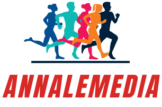In a world where athletes push their limits and fans cheer from the sidelines, sport science solutions are the secret sauce transforming ordinary players into extraordinary champions. It’s like having a personal coach, nutritionist, and data analyst all rolled into one—without the awkward small talk. From optimizing performance to preventing injuries, these innovative strategies are changing the game faster than a last-minute goal.
Sport Science Solutions
Sport science solutions integrate various disciplines that enhance athletic performance. These solutions include techniques from biomechanics, physiology, psychology, and nutrition. Combining these fields helps athletes achieve optimal results and reduces the risk of injury.
Biomechanics focuses on movement efficiency. By analyzing the mechanics of motion, trainers adjust techniques, which leads to improved athletic performance. Strength and conditioning programs often incorporate biomechanical insights.
Physiology addresses how the body reacts under stress and demands of sports. Monitoring heart rate and oxygen consumption provides data that drives training plans. Personalized approaches lead to better endurance and recovery rates.
Psychological strategies enhance mental resilience. Techniques such as visualization and mindfulness improve focus and reduce performance anxiety. Many athletes find that mental conditioning is as vital as physical training.
Nutrition plays a critical role in maximizing energy levels. Tailored diet plans fuel athletes properly for training and competition. Effective hydration strategies prevent fatigue and improve endurance during events.
Data analytics support decision-making. Wearable technology tracks performance metrics like speed and agility. This data enables coaches to make informed adjustments that elevate training effectiveness.
Implementing these sport science solutions creates a comprehensive framework for athlete development. By focusing on specific needs, athletes gain individualized support, which transforms potential into achievement. Innovators in the field continuously refine methodologies, fostering advancements that shape the future of sports.
Key Components of Sport Science Solutions

Sport science solutions include essential elements that optimize athletic performance and enhance injury prevention. These components demonstrate how integrated strategies contribute to athlete development.
Data Analytics in Sports
Data analytics plays a crucial role in understanding athlete performance. Wearable technology collects data on metrics like heart rate, speed, and recovery rates. Coaches analyze this data to identify trends and areas for improvement. Advanced analytics provide insights into training loads and fatigue levels, allowing for tailored training programs. Predictive modeling helps in injury prevention by identifying risk factors based on previous performance data. Efficient use of these analytical tools offers athletes and coaches the information needed to make informed decisions.
Performance Measurement Techniques
Performance measurement techniques focus on assessing an athlete’s capabilities and progress. Methods such as timing systems, motion capture, and strength assessments provide quantitative insights. These evaluations help in fine-tuning training regimens. Regular testing ensures athletes meet performance benchmarks over time. Techniques like video analysis enhance understanding of biomechanics, allowing for more effective coaching strategies. Accurate performance metrics ensure athletes receive targeted feedback, facilitating ongoing improvement.
Benefits of Sport Science Solutions

Sport science solutions provide a range of advantages for athletes and coaches, fundamentally transforming the sports landscape. These solutions enhance training methodologies and improve overall performance metrics.
Enhanced Athlete Performance
Enhancing athlete performance stands at the forefront of sport science. Data-driven insights from wearables and performance metrics enable tailored training regimens. Coaches assess physical capabilities, stamina, and strength levels to optimize individualized programs. Using biomechanics, movements become more efficient, allowing for quicker reaction times. Personalized nutrition strategies play a crucial role in fueling athletes, ensuring energy levels remain high during training and competitions. Psychological strategies further bolster performance, helping athletes manage stress and improve focus.
Injury Prevention Strategies
Injury prevention strategies form a critical component of sport science solutions. Coaches and physiologists analyze injury data to identify common risk factors associated with specific sports. Implementing strength and conditioning programs aids in addressing these risk factors. Regular assessments of flexibility and range of motion help in designing appropriate warm-up routines. Moreover, monitoring fatigue levels plays an essential role in reducing the likelihood of overuse injuries. Recovery protocols, such as active rest and nutrition, further support athlete health. With these targeted strategies, athletes experience fewer injuries, prolonging their careers and enhancing performance consistency.
Challenges in Implementing Sport Science Solutions

Implementing sport science solutions presents several challenges that require careful consideration. Resource allocation often becomes a primary hurdle. Many teams struggle to secure adequate funding, limiting access to advanced technologies and expert personnel. Budget constraints can hinder the implementation of comprehensive training programs, essential for maximizing athlete performance.
Integration with coaching methods poses another significant challenge. Coaches may find it difficult to adopt new strategies that align with sport science insights. Compatibility with existing training practices often requires adjustment, which some may resist. Effective communication between scientists and coaches also remains crucial. Ensuring that data-driven recommendations translate seamlessly into practice demands ongoing collaboration. Overcoming these challenges often leads to more effective athletic programs, promoting both performance enhancements and injury prevention.
Future Trends in Sport Science Solutions
Emerging technologies continue to shape sport science solutions, enhancing athlete performance and injury prevention strategies. Artificial intelligence plays a pivotal role in analyzing performance data, providing customized training programs that adapt in real-time based on individual athlete metrics. Machine learning algorithms can identify patterns in performance, offering insights that human analysis might overlook.
Wearable devices are becoming increasingly sophisticated, collecting data such as biomechanics and physiological responses during training sessions. Integration of these advanced devices into daily training routines allows coaches to monitor athletes closely, ensuring alignment with their specific performance goals. Virtual reality applications simulate competitive scenarios, helping athletes improve decision-making and mental preparation in high-pressure situations.
Advancements in nutrition science lead to tailored dietary plans that address unique athlete needs. Personalized recommendations optimize energy levels and recovery times, directly impacting performance outcomes. Continuous research in hydration techniques promises to reduce fatigue and enhance endurance, directly contributing to better athletic results.
Another trend is the focus on holistic athlete well-being, including mental health aspects. Combining psychological strategies with traditional training methods supports resilient mindsets, equipping athletes to handle competitive stress effectively. Communication platforms connecting athletes and support staff streamline data sharing, ensuring everyone is informed and aligned on performance optimization strategies.
Collaboration between various disciplines becomes essential as sport science evolves. Partnerships with experts in various fields, such as nutritionists and psychologists, enrich training approaches. Emphasizing evidence-based methodologies enhances the overall effectiveness of sport science solutions, contributing to the ongoing transformation of athletic performance and safety.
Future of Sport Science
Sport science solutions are revolutionizing the way athletes train and compete. By integrating various disciplines such as biomechanics, physiology, and nutrition, these solutions provide a comprehensive approach to enhancing performance and reducing injury risks. The use of data analytics and wearable technology empowers coaches to make informed decisions that cater to each athlete’s unique needs.
As technology continues to evolve, the potential for sport science solutions to further transform athletic performance is immense. Embracing these advancements will not only optimize training regimens but also promote a culture of safety and well-being among athletes. The future of sports is undoubtedly shaped by these innovative strategies, paving the way for a new generation of champions.

